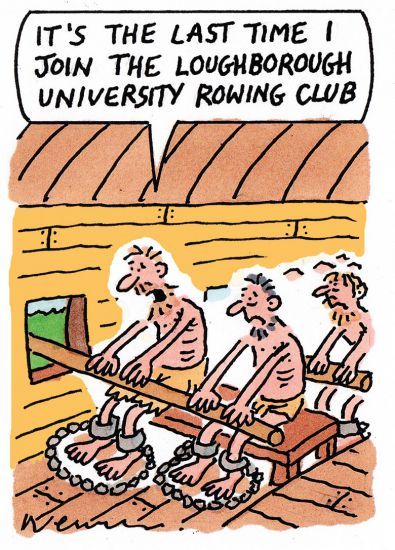
A degree that can be obtained without having to study or take any exams is bound to be a scam, right? Not so fast. According to business consultant Erwin Sniedzins, these were simply signs that the higher education provider that he had found online was at the “vanguard” of recognising people who had studied hard at the fabled university of life. “I don’t necessarily like to pay $30,000 (£18,000) to get a master’s when I feel I already have the knowledge,” he said in an interview with CBC News in Toronto. According to the news network, Sniedzins bought his C$8,100 degree from Kings Lake University, a website linked to Axact, a Pakistan-based software firm that has been the focus of an international degree-mill investigation. A separate CBC investigation has found that hundreds of Canadians could have such fake degrees, although a lawyer for Axact told CBC that there was no evidence that the firm owned or ran degree-mill websites.
Those who do study hard for an academic qualification understand how valuable their work is. This was demonstrated by one South African student who was determined that armed robbers would not take her thesis when she was attacked in Johannesburg. A video of the robbery captured by security cameras shows Noxolo Ntuli, a medical scientist at the National Health Laboratory Service, clinging on to a bag containing her molecular zoology master’s thesis on a hard drive. Although the attackers took another bag, she managed to stop them taking the one with the thesis inside, despite them threatening her with a gun, the BBC reported on 13 September. “I was thinking about my master’s. I’m almost done with what I’m writing, there’s no way I will let them take it,” she said, adding that in retrospect she would not advise others to follow her example.
‘Tis once again the season of mists, mellow fruitfulness and, as Keats didn’t say, the return of the freshers’ week apology for politically incorrect events. This staple of mid-September – previously filled by outcries over “racist sombreros” and “cowboys and Indians” parties – returned with news that a hall of residence at Loughborough University had been planning a “slave auction” and “slave night” as part of entertainment for new students, The Guardian reported on 15 September. “Slave night is an unacceptable and racist title,” said Faraday Hall freshers’ team in a statement, adding that the committee was “deeply saddened to realise that we’ve caused offence and regret that entirely”. The university’s Afro-Caribbean Society criticised “such displays of ignorance and blatant disregard for coloured people”. “To make matters worse, the event was scheduled to take place during our month of black appreciation,” it added.
He is credited with taking Sky Sports punditry to new heights, and now ex-footballer Gary Neville is now hoping to do the same for higher education. The former England right-back unveiled his plans to create a new “university academy” with the help of former Manchester United teammates David Beckham, Paul Scholes and Ryan Giggs, with Lancaster University and Microsoft helping to complete the dream team. Based at a new campus in Trafford, where degrees in media, business and sport will be taught, the institution will officially be called “University Academy ‘92” – a nod to the 1992 FA Youth Cup-winners who went on to star in Sir Alex Ferguson’s most celebrated team. Of course, that was also the year when polytechnics turned into post-92 universities – a tag that they have spent 25 years trying to shed. Could Neville’s new venture breathe some street cred back into the moniker?
Chelsea Manning, the former US soldier jailed for leaking state secrets, hung up on the dean of Harvard Kennedy School after he called to rescind her invitation to be a visiting fellow, The Guardian reported on 15 September. Manning abruptly ended the conversation with Douglas Elmendorf as he explained why the fellowship was being cancelled just a day after it had been announced. The decision came after Central Intelligence Agency figures raised objections to Harvard offering the whistleblower a place in its 2017-2018 visiting speaker programme. CIA director Mike Pompeo cancelled an appearance at Harvard and former deputy director of the agency Mike Morell quit his own visiting fellowship in protest at what the two men described as the honouring of a “traitor”. Amid criticisms that Harvard had compromised on academic freedom by bowing to political pressure, the school’s dean later issued a statement saying that while “more speech is better than less…in retrospect [given the resignation of other speakers]…my assessment of that balance for Chelsea Manning was wrong”.
Register to continue
Why register?
- Registration is free and only takes a moment
- Once registered, you can read 3 articles a month
- Sign up for our newsletter
Subscribe
Or subscribe for unlimited access to:
- Unlimited access to news, views, insights & reviews
- Digital editions
- Digital access to THE’s university and college rankings analysis
Already registered or a current subscriber? Login